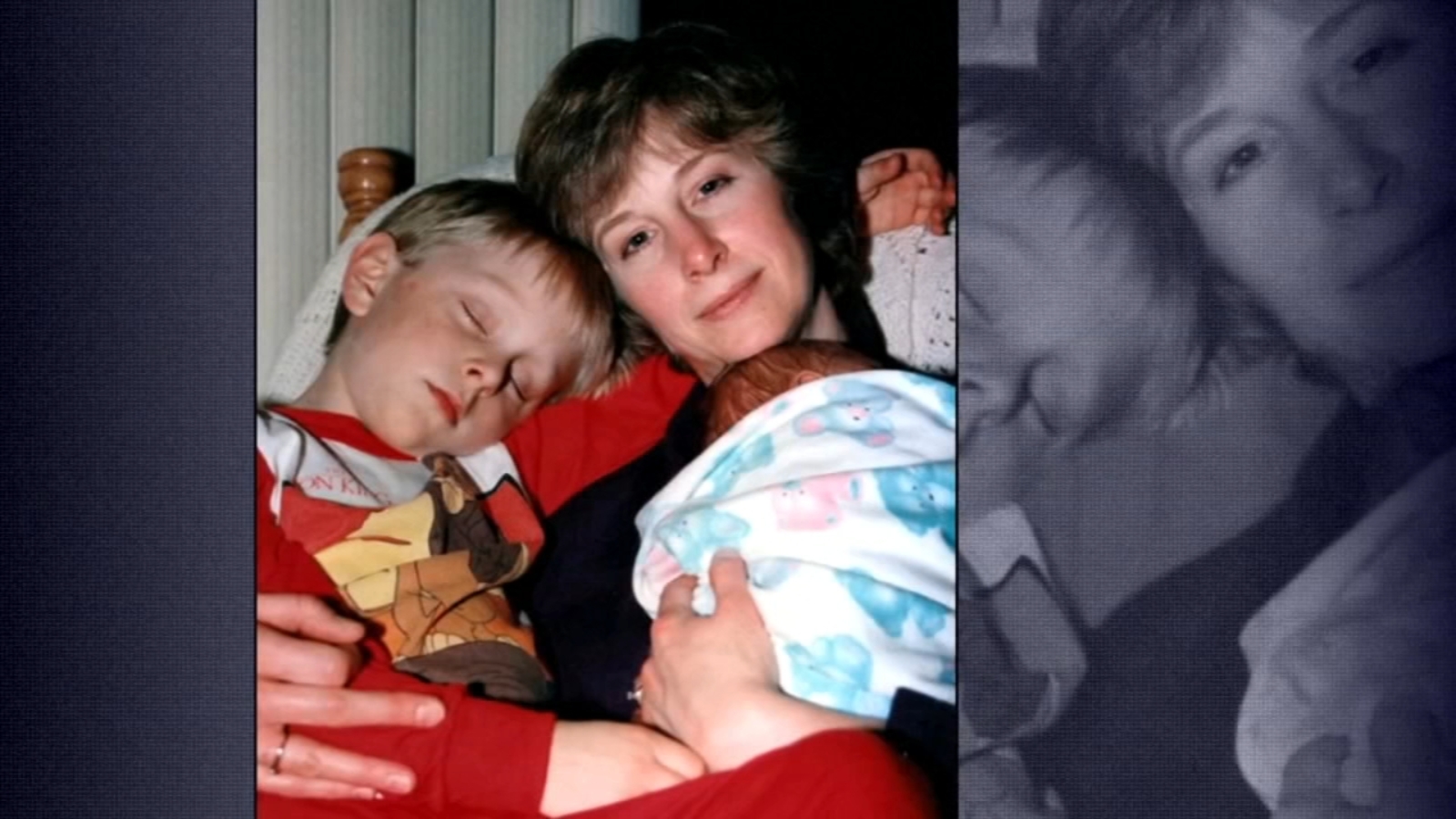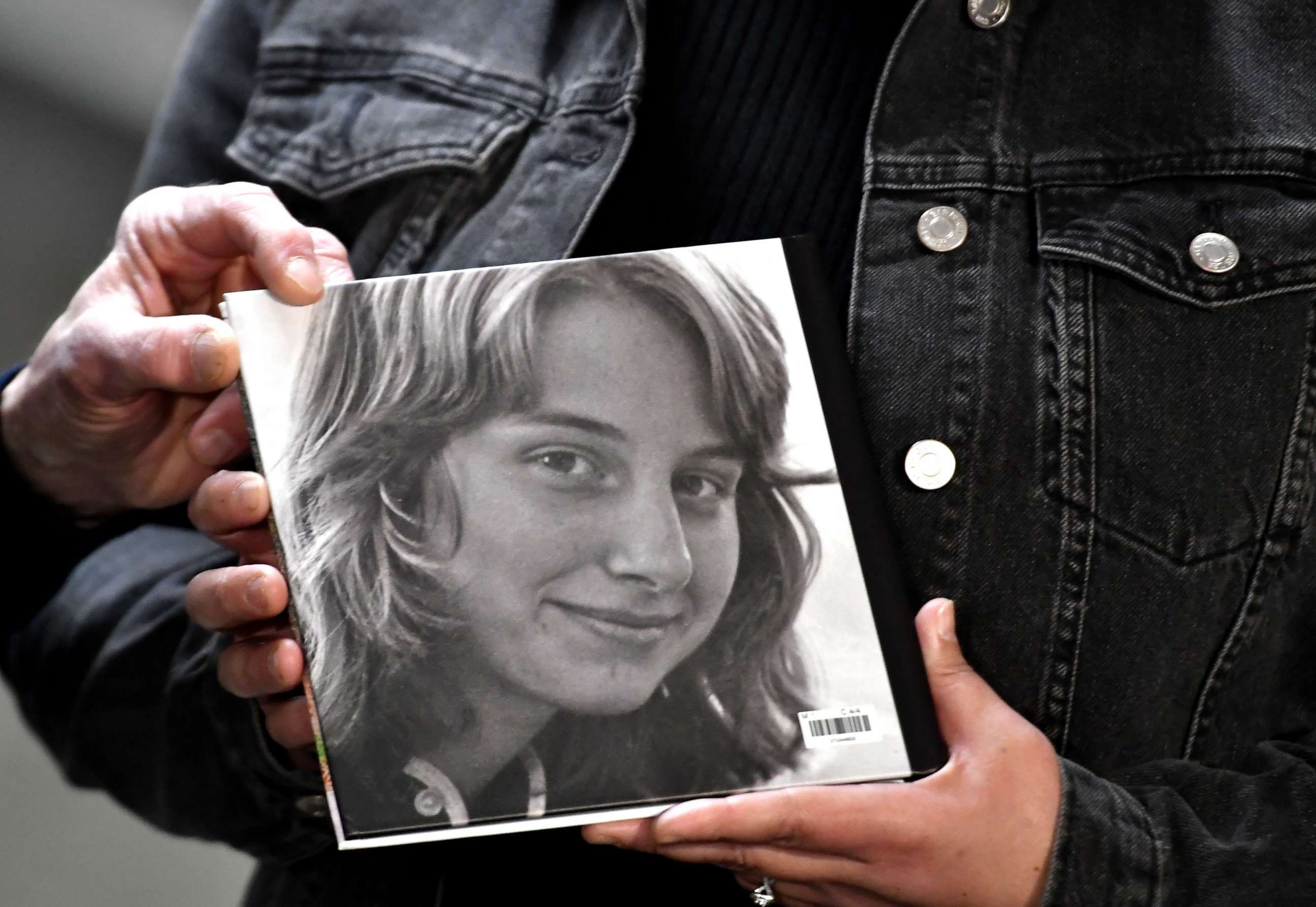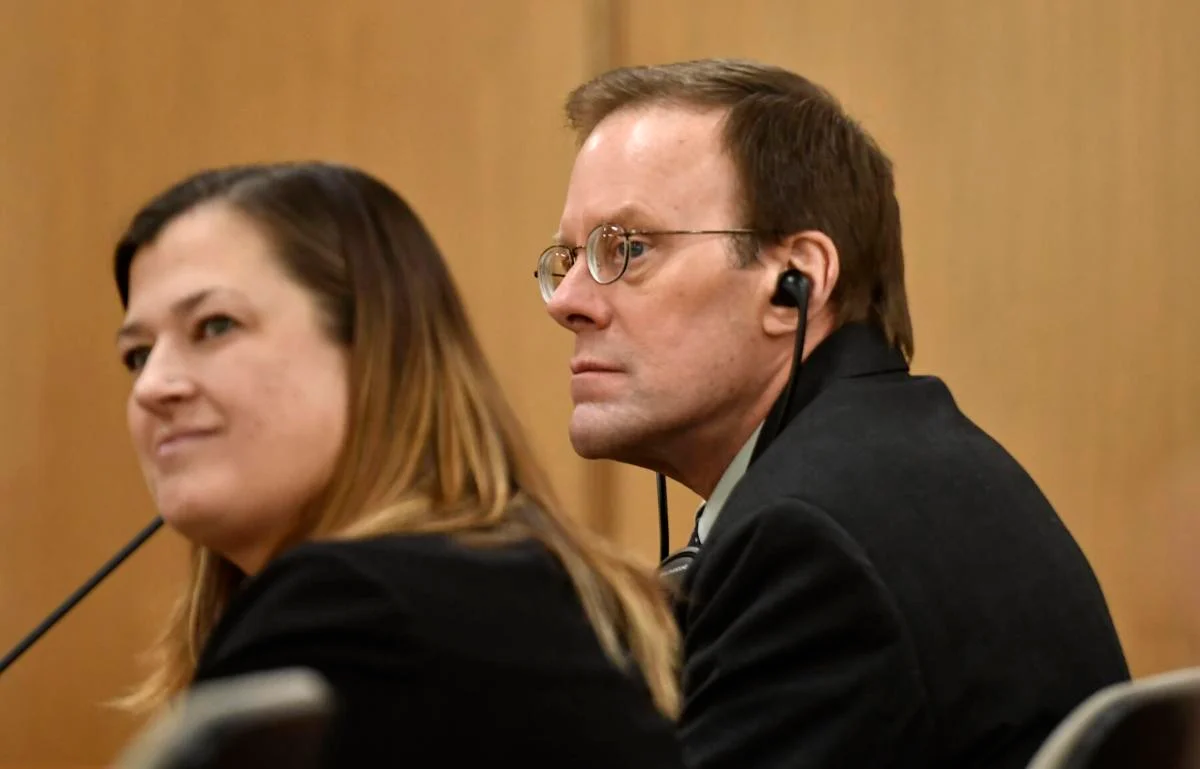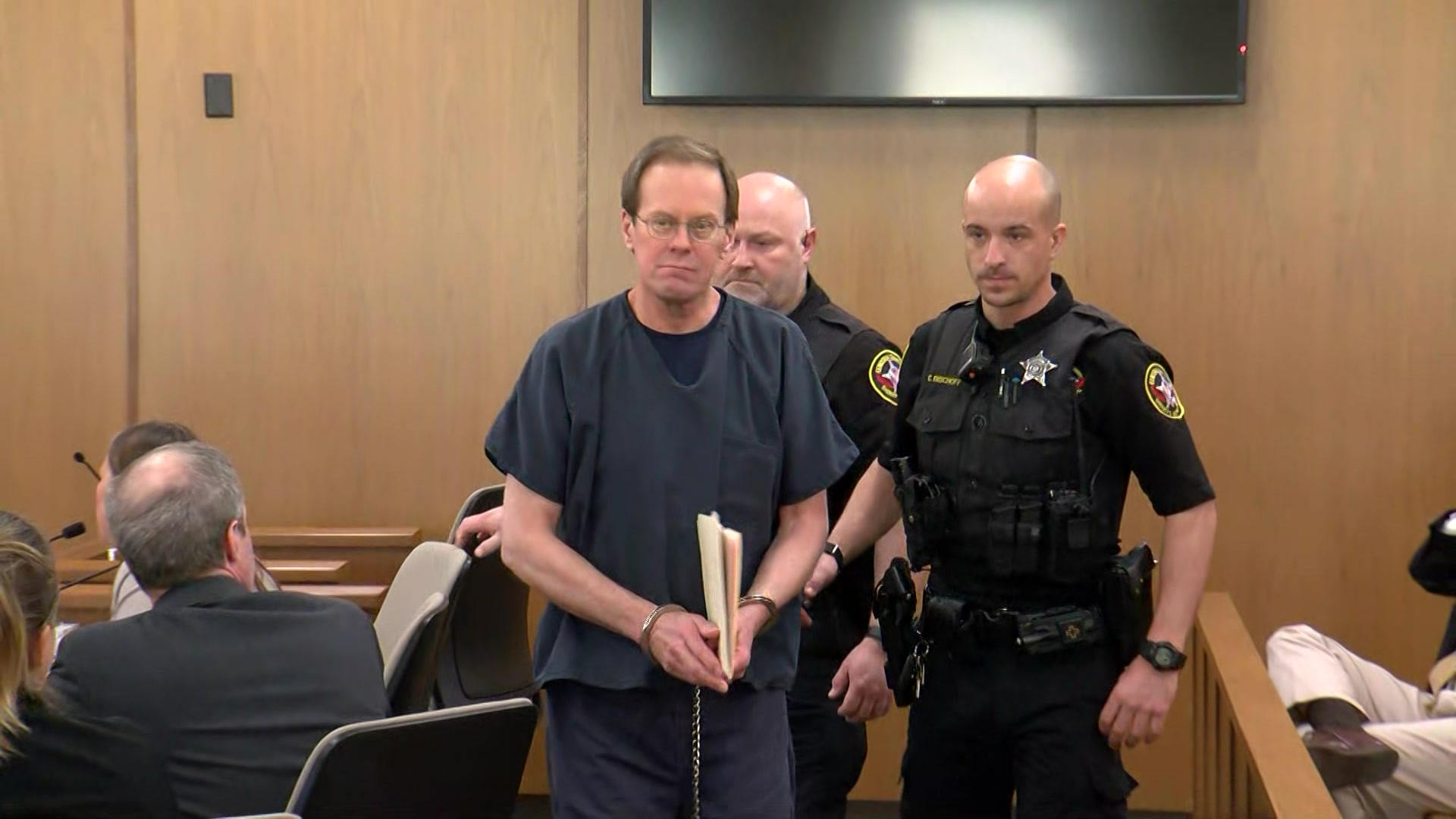
Uncover the gripping tale of "Death By Antifreeze - The Murder Of Julie Jensen," exploring the shocking true crimestory behind this tragic incident murder of julie jensen.
Delve into the chilling details of the case, revealing the mystery and investigation surrounding Julie Jensen's untimely demise by antifreeze poisoning. Discover the unsettling narrative, motives, and legal proceedings surrounding this notorious murder case that captivated the nation's attention.
From Denial To Double Conviction - The Enduring Shadow Of Julie Jensen's Murder
On December 3, 1998, the discovery of Julie Jensen's lifeless body by her husband, Mark Jensen, initiated a perplexing investigation. Mark claimed ignorance about the cause of her death, mentioning her recent illness over the preceding days.
Initially, the autopsy yielded no definitive conclusions about the cause or manner of Julie's passing, leaving the Kenosha County, Wisconsin, medical examiners baffled.
However, the case took a chilling turn when investigators seized the family's computer, raising suspicions of Mark Jensen's involvement in his wife's demise. This suspicion led to a prolonged legal battle, spanning two murder trials—a first in 2008 and a subsequent one in January 2023—before Mark was ultimately convicted.
The trials unveiled a disturbing narrative,a deliberate poisoning of Julie with antifreeze, coupled with the administration of sleeping pills and eventual suffocation.
A pivotal point in the trials revolved around a letter Julie had written shortly before her death, explicitly pointing towards her husband if anything untoward happened to her.
Following extensive legal proceedings, a judge sentenced Mark Jensen to life imprisonment without the chance of parole, culminating in the resolution of a harrowing and long-contested legal saga surrounding the tragic death of Julie Jensen.
Suicide Or Murder?
Mark and Julie Jensen resided in Pleasant Prairie, Wisconsin, a small lakeside town near Milwaukee. While Mark worked as a stockbroker, Julie stayed at home caring for their two young sons, David and Douglas.
Their marriage, however, was marked by turbulence, especially after Julie's confession of a brief affair in the early 1990s, which led to persistent harassment from an unknown source.
The couple endured years of distress as someone repeatedly left explicit images in their home, on vehicles, and made harassing phone calls, meticulously documented by Julie in a logbook. Julie's mental well-being deteriorated, culminating in a doctor's visit just days before her demise, where she received a prescription for the antidepressant Paxil.
During the January 2023 trial, the family doctor, Richard Borman, testified about Julie's profound distress and depression. Mark Jensen's defense team framed Julie's mental health struggles as a crucial part of their argument, suggesting she might have died by suicide and staged her death to implicate her husband.
However, the prosecution presented a conflicting narrative. Upon investigating the family computer's browsing history, they uncovered searches related to lethal methods, notably ethylene glycol poisoning, a key component of antifreeze.
Medical examiners also detected traces of ethylene glycol in Julie Jensen's blood, stomach, and urine, aligning with the disturbing internet searches uncovered during the investigation.
“Antifreeze is very, very available and it is very bad for you,” Jennifer Shen, a retired crime lab director for the San Diego Police Department who was not involved with the case, tells A&E True Crime. “If you ingest it, it can be a long time before you even realize something is severely wrong with you. But it would be difficult to explain how an adult would ingest a lot of antifreeze.”
Evidence discovered by investigators revealed Mark Jensen's extramarital involvement with a woman named Kelly LaBonte (nowKelly Brooks) in the period preceding Julie Jensen's death. Shortly after Julie's passing, LaBonte moved in with Mark, and in subsequent years, the two married.
Prosecutors contended that Mark Jensen orchestrated his wife's demise to pave the way for a relationship with LaBonte. They asserted that he harbored unforgiving feelings toward Julie due to her prior affair with a coworker. According to their argument, this resentment and his involvement with LaBonte were driving factors behind Julie Jensen's alleged murder.
During closing arguments of the January 2023 trial, “Mark Jensen, who had tormented and punished and never forgiven his wife for years, found her replacement and then killed her,” said Carli McNeill, Kenosha County deputy district attorney.
Shen suggests that if Mark Jensen indeed committed the murder to facilitate a relationship with his new partner, using poison as the murder weapon aligns with this motive.
Shen indicates that Mark's potential lack of love or concern for his wife could explain the choice of poison, as it implies a calculated and premeditated plan to eliminate her. This method suggests a deliberate effort and careful consideration in plotting Julie's demise, indicating a lack of empathy or regard for her well-being in Mark's actions.
“In a lot of murders, someone just flips out and stabs or shoots someone, there’s a situation that pushes them to have a very violent, physical response,” she says.
“Whereas poisoning is more deliberate and planned out. It’s generally more premeditated, and it’s usually a more dispassionate approach. You’re watching that person suffer and you’re fine with it because it’s a means to an end. You’re not connected to your victim anymore.”
The Letter From The Grave
The case against Mark Jensen was bolstered not only by his extramarital affair and the disturbing internet search history but also by a compelling letter penned by Julie Jensenjust prior to her death, which became a source of extensive legal contention.
Julie, about a week and a half before her demise, entrusted a sealed envelope to a neighbor, containing a handwritten note expressing suspicion toward Mark: "if anything happens to me, [Mark Jensen] would be my first suspect."
Moreover, the envelope enclosed a photo captured by Julie, revealing a list in Mark's handwriting detailing unsettling items such as "own drug supply," "bag hands," and "syringe." Prosecutors viewed this list as a potential compilation of methods to carry out a murder, further supporting their case against Mark Jensen.
This so-called "letter from the grave" was a critical piece of evidence presented during Mark's initial 2008 murder trial, leading to his conviction and a life sentencewithout parole.
However, Mark contested the letter's admissibility, arguing that it violated his constitutional right to cross-examine a witness providing evidence. This legal battle eventually reached the Wisconsin Supreme Court in 2021, resulting in a decision favoring a new trial for Markwithout the letter as admissible evidence.
In January 2023, prosecutors retried the case and once again secured a conviction, leading to a maximum sentence of life imprisonment without parole, as stated by Judge Bruce Schroeder.
Mark Jensen currently resides at the Oshkosh Correctional Institute in Oshkosh, Wisconsin, following a deeply contentious and legally complex trial that hinged on the contentious letter and its admissibility.
Mark Jensen Sentenced To Life Without Parole In Wife’s Killing
Mark Jensen, convicted of poisoning and suffocating his wife Julie Jensen, received a life sentence without the possibility of parole. The judge, Bruce Schroeder, emphasized the enormity and cruelty of the crime, stating that anything less than the maximum sentence would be unfair to the severity of the offense.
Jensen, 48, showed minimal reaction when the sentence was delivered, having been found guilty of first-degree intentional homicide, an offense mandating life imprisonment. Judge Schroeder had the discretion to decide parole eligibility.
Before the sentencing, the judge offered Jensen an opportunity to speak, but he declined, stating, "No, thank you, your honor."
Julie Jensen was discovered dead in her home in 1998, allegedly poisoned with antifreeze and suffocated. Mark Jensen asserted that his wife had taken her own life, framing him in the process.
David and Douglas Jensen, the couple's sons, conveyed their belief in their father's innocence through a letter presented by defense lawyer Craig Albee. They pleaded for parole eligibility for their father at the earliest possible opportunity.
Mark Jensen's sentencing hearing involved emotional testimonies. Jensen's defense lawyer, Craig Albee, read a letter from Jensen's sons, highlighting their father's care for them after their mother's death. Jensen appeared visibly affected as Albee read the letter, while his eldest son, David, and his wife, Kelly, along with Jensen's parents and sister, were present in the courtroom.
Julie Jensen's brothers also spoke during the hearing. Patrick Griffin characterized Jensen as calculating and maniacal, urging the court to show no mercy, while Paul Griffin accused Jensen of callously disregarding their sister's well-being, labeling him a coward for alleging Julie's suicide and erasing her from her sons' lives.
Prosecutor Robert Jambois depicted Jensen as a sociopath, detailing his mistreatment of Julie, including tormenting her with explicit photos, humiliating her over a brief affair, and attempting to move his girlfriend into their home before Julie's wake. Jambois vehemently opposed parole or setting a date far into the future, stating it shouldn't be within Jensen's lifetime.
Albee, Jensen's defense attorney, requested the judge to consider the wishes of Jensen's sons in the future, emphasizing that Jensen had been a caring father despite biased opinions against him.
Julie Jensen had suspected foul play and left a note with a neighbor fearing for her life. Despite constitutional challenges in using such a letter in court, new evidence rules allowed Julie Jensen's letter and statements to be presented at trial.
Albee mentioned the likelihood of an appeal, noting a pending U.S. Supreme Court decision in a California case. If that conviction were overturned, legal experts believed it might open the door for a potential retrial for Mark Jensen's case.
The California case, involving Dwayne Giles convicted of killing Brenda Avie, contested the admissibility of Avie's statements made to the police before her death, arguing that Giles' lawyer never had a chance to cross-examine her.
Overall, the sentencing hearing highlighted the emotional impact on both sides, with passionate pleas from Julie Jensen's family and contrasting assertions from Jensen's defense regarding his role as a father and the admissibility of evidence in the trial.


